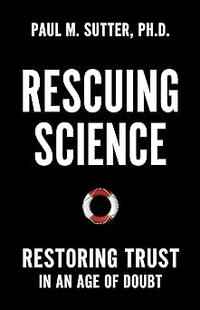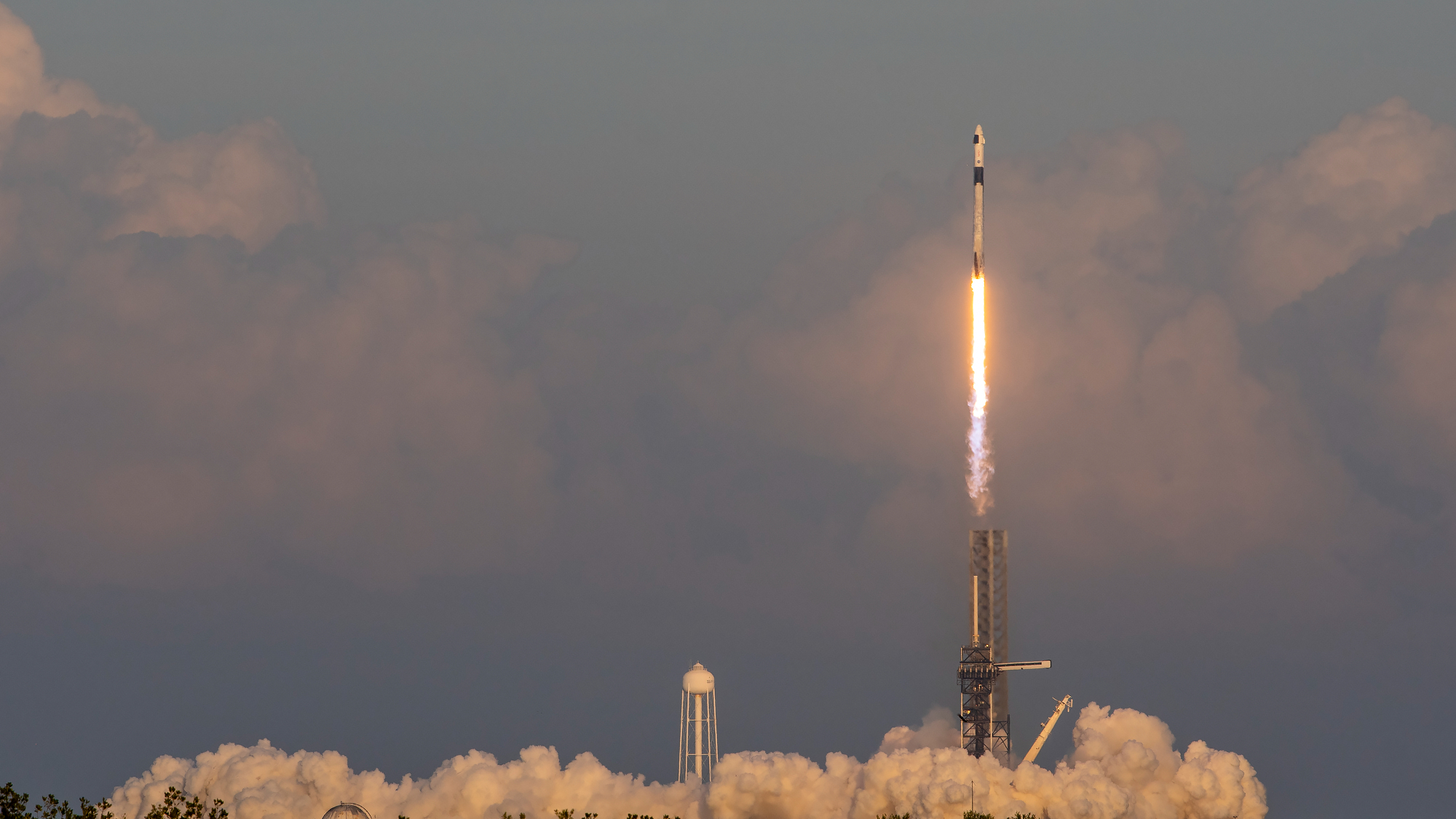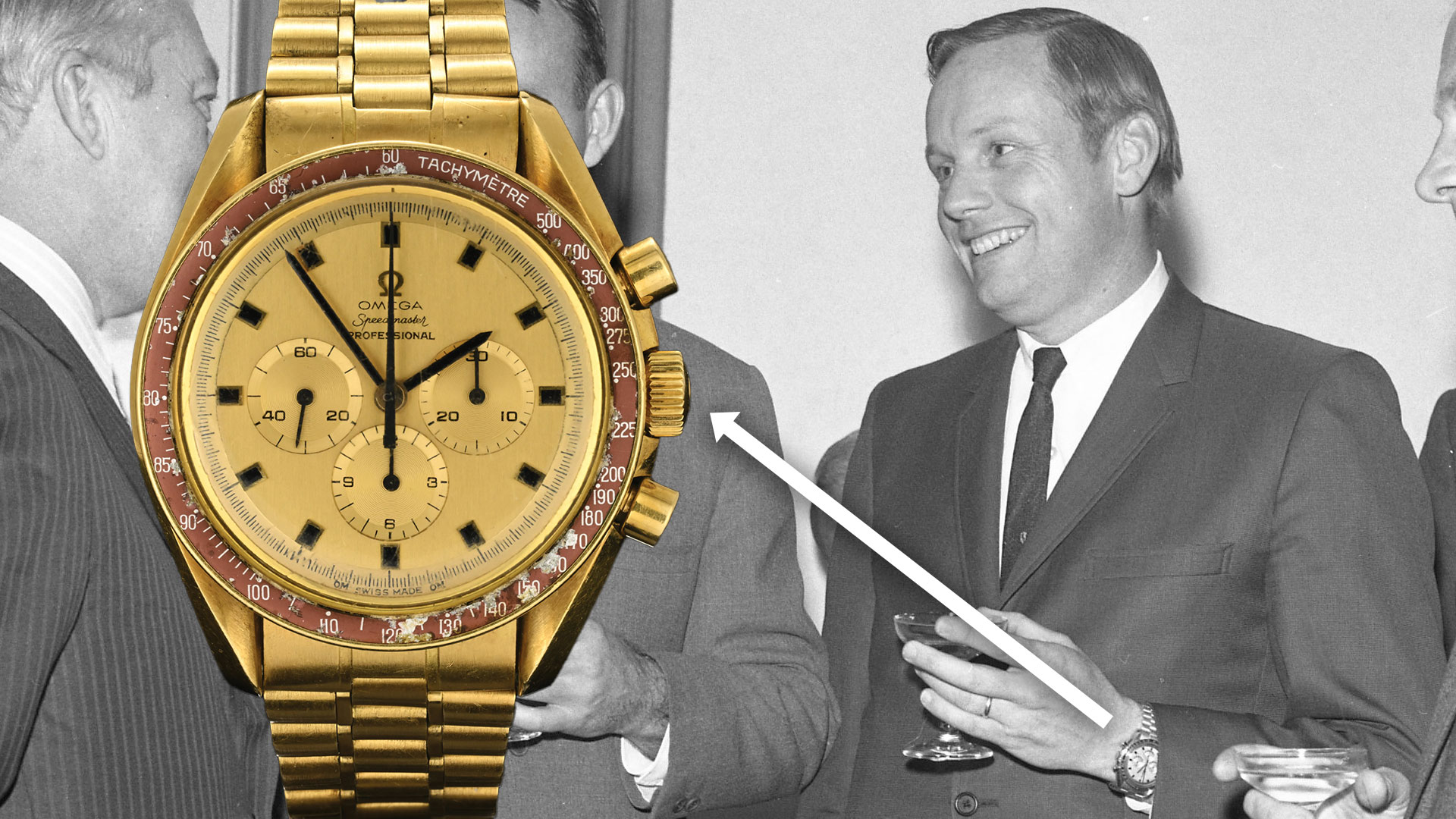How can we restore public trust in science? (op-ed)
Science is becoming ever more politicized, leading to reduced trust in the scientific process and the knowledge it produces.
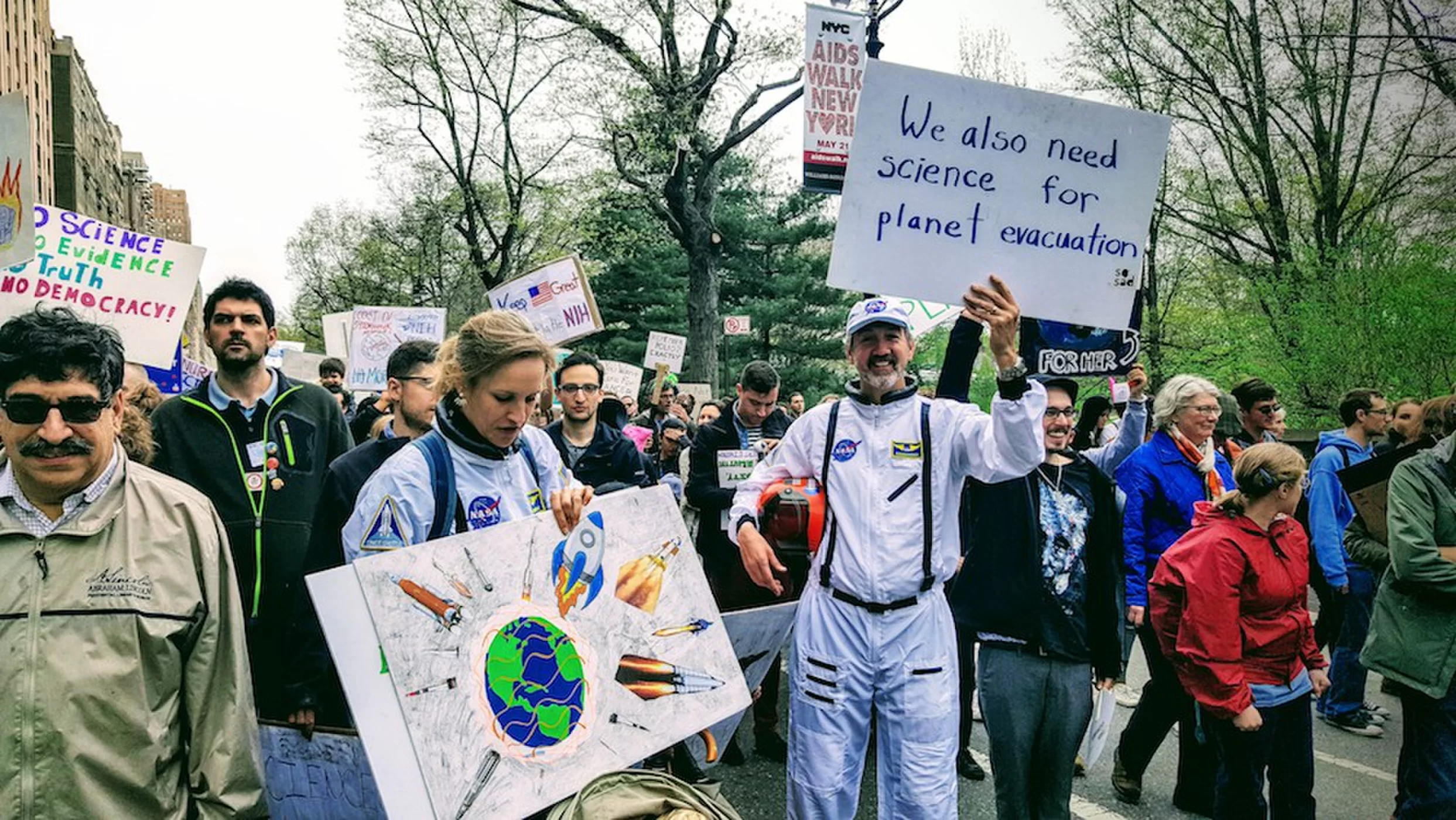
In an age of diminishing trust in science, scientists need to change how they work with the public and within the broader scientific community.
The vast majority of fundamental scientific research — the kind of science that pushes ever deeper into unknown regions and expands humanity's knowledge — is funded by government organizations. In the United States, that typically takes the form of federal agencies like NASA, the National Science Foundation, the National Institutes of Health, and the Department of Energy. Scientists compete for grant funding to support the hiring of students and junior researchers, purchase expensive equipment, and write research papers.
Unfortunately, funding for the sciences has been dropping consistently for the past few decades. While there are occasional spikes of increased funding, there is now less money going to basic research, especially when measured as a fraction of all federal spending, than in over half a century.
Fueling this declining interest in science funding is a declining interest and trust in science itself. While scientists have historically enjoyed a high level of trust among the public, that trust has been consistently dropping, from a high of 75% just before the pandemic to a present-day low of 57%, according to a Pew Research poll conducted between Sept. 25 and Oct. 1.
Related: What is the difference between science and pseudoscience?
What's more, science is becoming ever more politicized, with left-leaning policymakers more likely than right-leaning politicians to support science funding. Those leaders' votes mostly align with their constituents' views: Respondents who identified as Republican were much less likely to view scientists positively.
With that decline in trust comes a decline in funding, and unfortunately for scientists, that drop in funding creates dysfunctions that lead to even more reduced trust.
Get the Space.com Newsletter
Breaking space news, the latest updates on rocket launches, skywatching events and more!
The spreading disease
A reduction in public funding for science leads to three sets of dysfunctional relationships: It affects how scientists interact with each other, with students and with the public.
The competition for grants has grown ever fiercer in the past decade, with scientists spending more of their time fighting it out for fewer research dollars. The typical grant award rate is now below 20%, meaning that researchers have to reapply year after year to get even a small amount of funding, with awards usually not even enough to cover the time spent applying for the grants in the first place.
To judge scientists in this competition for grants, awards and professional opportunities, scientists encourage each other to publish — a lot. Over 3 million journal articles were published last year. The more a scientist publishes, and the more that work is cited, the more likely that scientist will be to win awards and advance in their careers.
This intense pressure to publish — often summarized as "publish or perish" — has led to a stunning rise in shoddy work. Some of that is downright intentional fraud — a deliberate distortion of the data to get a publishable result. But more often, it's simple laziness, driven by an eagerness to get a paper out sooner rather than later. It's also the responsibility of journal publishers to adhere to a rigorous and thorough peer-review process, which isn't always the case.
Rescuing Science: Restoring Trust In an Age of Doubt: $38 at Amazon
Rescuing Science: Restoring Trust in an Age of Doubt is the product of Paul M. Sutter’s long career in the scientific community, both inside and outside academia. Interweaving his own experiences as an astrophysicist with broader trends observed by himself and others, Sutter roots the current distrust of science within the academic scientific community itself. Throughout this book, Sutter reveals a community that has come to disregard the broader public, is obsessed with winning grants, ignores political landmines, limits the entrance of minorities, and permits fraud in the pursuit of notoriety.
Along with that increased competition for funding comes increased competition for jobs. Students are signing up for science majors at record numbers, with some departments seeing double or triple the number of students compared with two decades prior. Universities love this glut of students, because they often bring federal loans to pay for their increasingly expensive education. Yet there is no commensurate growth in long-term positions. Students go on to get doctorates, start short-term positions and then find themselves in their early 30s without a permanent position in science. In some fields, there are 10 new doctorates awarded for every new open position — an untenable situation.
Lastly, scientists are discouraged from communicating their work to the public. Hiring, tenure and promotion committees view public outreach neutrally at best, and with derision and scorn at worst. Despite the critical need for the public to hear about the latest scientific research, scientists themselves are often the last ones to do it. And why should they? If it doesn't help them in their career, it's a waste of time for them.
The rise in fraudulent work, the lack of long-term career options for budding young scientists, and the discouragement of science communication all contribute to a lack of interest in continuing science funding, which starts the downward cycle anew. Thankfully, there's a way out.
The way out
The lack of funding is causing these dysfunctions within science. But scientists can't just expect to ask for more funding and automatically get it; the public is already becoming ever more disillusioned. So instead, scientists must work within the current funding restrictions and present a new face to themselves, to their students, and to the public. That is the road to rebuilding trust, and with that increased trust comes more secure funding.
First, scientists need to let go of the pressure to publish. There are already too many papers coming out for any researcher to keep up with their own field. Scientists are pretending that they can measure success through publication and citation counts, but this is simply distorting the way science is done. Scientists need to publish less and be given more time to develop long-term research plans.
Along with that, funding agencies need to offer more high-risk/high-reward programs, favor junior researchers over established ones, and introduce randomness into the selection process so that more researchers get a chance to try out new, innovative ideas.
Second, if we're going to maintain the present science-student population levels, we need to drastically cut the number of short-term postgraduate positions. If there aren't enough permanent positions in science, then students should be trained for positions outside academia and be allowed to exit academic research when they are still young, not after some of their most productive years have already been spent.
Lastly, scientists must communicate with the public, often and directly. Science communication training should be a part of every graduate program and a built-in expectation of every faculty position.
Once scientists tackle fraud by reducing the pressure to publish, lessen disillusionment by being honest about career paths, and make science more personable by working face-to-face with the public, they can start rebuilding trust and regaining funding and, from there, ensure the continued survival of science for generations to come.
Join our Space Forums to keep talking space on the latest missions, night sky and more! And if you have a news tip, correction or comment, let us know at: community@space.com.
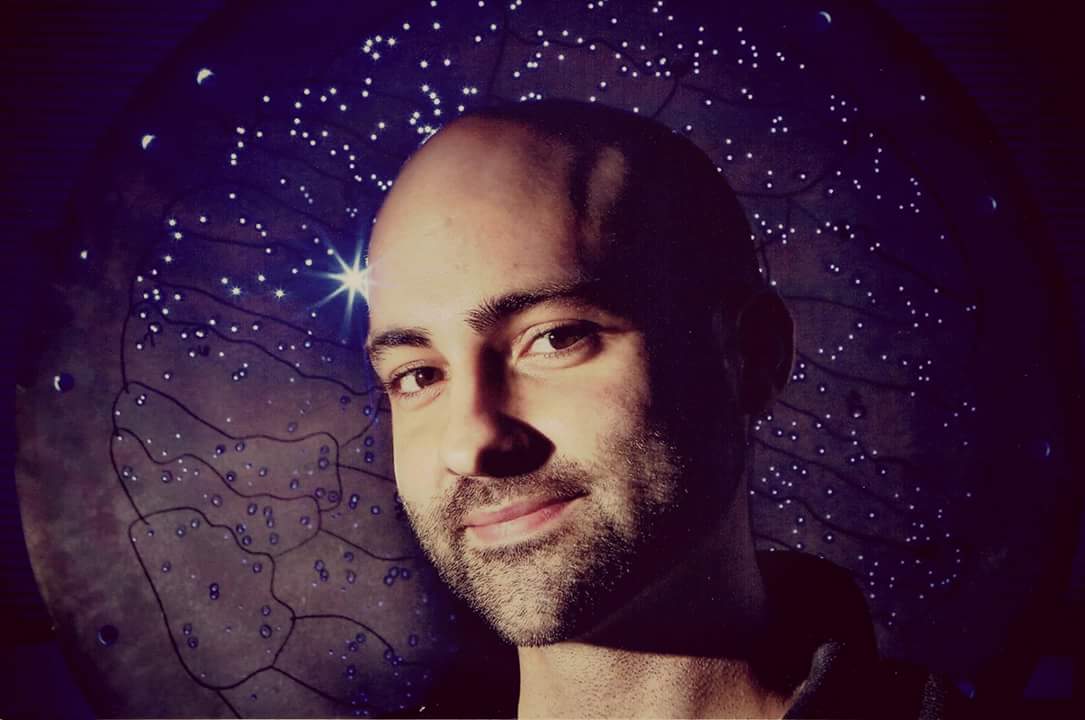
Paul M. Sutter is an astrophysicist at SUNY Stony Brook and the Flatiron Institute in New York City. Paul received his PhD in Physics from the University of Illinois at Urbana-Champaign in 2011, and spent three years at the Paris Institute of Astrophysics, followed by a research fellowship in Trieste, Italy, His research focuses on many diverse topics, from the emptiest regions of the universe to the earliest moments of the Big Bang to the hunt for the first stars. As an "Agent to the Stars," Paul has passionately engaged the public in science outreach for several years. He is the host of the popular "Ask a Spaceman!" podcast, author of "Your Place in the Universe" and "How to Die in Space" and he frequently appears on TV — including on The Weather Channel, for which he serves as Official Space Specialist.
-
George² It's easy. We give the scientists 10 years in which the scientists have to make us a real interplanetary civilization. I.E. To invent and build spaceships with crew, passengers and cargo that can take off from Earth and be able to reach even the outermost planet in the system, and when it is at its greatest distance from Earth, in under one month of travel.Reply -
Atlan0001 We do not have an open frontier system, nor, truly, an opening frontier system, thanks to ever growing pursuits of political-cultural pseudo-sciences and a massing of pseudo-scientists.Reply
Maybe one of these days, enough leading scientists and political leaders both will learn money is nothing more than the token of energy (meaningful money in meaningful energies on the one hand and meaningless floods of meaningless paper, so to speak, on the other hand) and energy ties absolutely to a reality of open, or opening, energetic frontier system. War comes in two varieties, benign and malignant. Going for birthing an opening, an expanding, frontier system is a costly but most benign war, else the costliest wars there are, the malignant wars of an ever closing, ever shrinking in positive energies, entropic ugly, isolated island universe, deadly black hole-like frontier world system where the sciences, among too many other things, inbreed. -
George² There are no exact percentages listed in the article. I don't have time to track down related material. Can I safely assume that over 50% of scientists who are now retired did not contribute anything useful during their entire careers? They only registered their card when they go to work and then when they leave the office at the end of working hours.Reply -
Helio At its best, all science is objective-based. At its worst, it claims authority in subjective-based directIves where power plays and politics take myopic approaches to problems. Covid directives quickly cancelled many top scientists, allowing science to get tangled-up in unnecessary disputes. Covid more than things like “cold fusion” has brought the distrust, but not so much for astronomers, thankfully.Reply
Also, objective-base means merit base, as well. 1800+ colleges have dropped SAT and ACT requirements.
Here is a link.
DEI is anti-merit program that will prove to have done more harm than good for those it sought to lift-up. Industry, rest assured, we’ll find some way to test the caliber of graduates before being stuck in hiring those that are found to be below industry’s normal expectation. One law firm declared they would not hire a law grad from a prominent CA univ. due to this problem. -
billslugg A "scientist" is anyone who has a BS degree. Yes, most of them never published. We made our accomplishments in industry, unpublicized for proprietary reasons.Reply -
Questioner Science is what it has always been,Reply
Understandings foundated in evidence and logic.
And that is not the cream puff many romanticize it to be.
One can't start with a premise that isn't scientifically foundated, namely that everything has a rational explanation and isn't really that difficult to figure out.
Some things may be fundamentally irrational.
Some things may simply be beyond current sensory equipment or our ability to conceptualize and reason.
A repeated problem is when a statistical correlation (which is good science) very commonly gets stretched beyond the actual data to presume a particular cause and effect.
Cause and effect is only one of several possible reasons for a statistical correlation.
Compound intellectual garbage like "zika causes microcephally" is a discrediting embarrassment,
And a danger,
because it buries the actual source of danger which through logical deduction fits with Pyroproxifen.
The 'scientific' conclusion, funded by oil companies, for decades that lead in the environment was 'natural background lead' and not from leaded gasoline is another embarrassment and danger to live down.
'Science' becomes a social and 'authority' phenomenon slapping the label of 'science' on things without the tough rigorous, ethical scrutiny actual science requires.
Focus on money, careers, prestige, 'authority' and grants is not actually a focus on determining whether an explanation is valid per evidence or not.
I hate to say it, but the universe has no inherent reward for correctly determining something from evidence.
Hearsay, even from a published 'journal' is still hearsay and until one has made some effort to scrutinize what is claimed by data &/or logic it is not to be trusted.
A am strongly suspicious that the crash in insect populations is a function of neonicotinoids and not 'dams' or climate change.
Reality means for important topics sensible people must do some homework before making decisions. -
Helio Reply
And, IMO, it’s scientists like you that are needed to be allowed more input to give greater balance to science, especially when academic and government scientists might be too biased. The media need to be cognitive to this and give scrutiny more latitude.billslugg said:A "scientist" is anyone who has a BS degree. Yes, most of them never published. We made our accomplishments in industry, unpublicized for proprietary reasons. -
Dave What science lacks today is the ability to inspire. Science can take the most compelling and exciting of events and make them boring. The 'pale blue dot' had nothing to do with science, but science was needed for it to happen. (Thank you Carl Sagan) You inspired millions.Reply
All of these rovers and spacecraft on Mars, but all the scientists care about is the science.
Not once did we send anything to the tallest volcano or the deepest canyon known in existence. Opportunity wasted (no pun intended.) The scientists say there is more important science elsewhere on Mars. They are wrong. Science can inspire . It just needs imagination. Imagine for a moment if the landing site for Ingenuity was different. Flying close to or over Valles Marineris would be jaw dropping and the science would be equally important. -
Unclear Engineer From my observations, people who have learned some theory and love to show off their knowledge on the Internet have had a bad effect on public credibility of "scientists" in general.Reply
When they should be saying things like "according to the best theory whe have . . ." and "We know is true because we have measurements of . . .", we have people pontificating assertions based on theories (that have problems with real measurements) as if those theories are proven fact. So, when some new observations require changes in the theories, those who heard the earlier assertions lose faith in people making assertions and claiming that it is "proven" by "science".
On top of that, we have the long-running experience of biased organizations using bad or incomplete science to support their desired political or financial positions about "what we should do". Having worked in government trying to use good scientific methods to guide policies, I can attest to the large amount of pressure exerted to support specific results, Sometimes there are divisions in the government that that put conflicting pressures on the same analysts to come up with different, conflicting conclusions. The problem is that the analyses are so complicated that the biased people do not expect anybody to find where the "mistakes" are made to get the answers they desire.
And, finally, "science" is oversold to the public about its ability to predict the future. Even the best "modelers" underpredict the uncertainty of their results. That is mainly due to the fact that they don't know everything that affects their modeled phenomena, and so can't account for what they don't know that they don't know. So, the pubic often sees predictions not come true. Part of that problem is that the public does not even read the actual scientific studies - it reads the popular media reports about the studies, which tend to be biased according to what the owner of the media company wants the public to think, for reasons political or financially beneficial to the media company.
The only solution I see to this is better basic education for the public. It needs to start in school. It needs to be continued through media outlets. But, even the school systems seem to be getting over run by ideologues who are pushing political agendas with pseudo science.
So the question in my mind is whether humans as a species are smart enough to use science to actually solve our problems, or will the disillusioned and p***ed-off societal elements simply reject what options scientists really can provide, so that implementation is not possible? -
Damon A Public perception is that science has been coopted by politics.Reply
I fear the public is right.
Another problem is the fearmongering. "We have 5 years to save the planet!" That date passes. "We have 10 years to save the planet!" With no explanation for what we did to save it after the first 5 years or why the original date was wrong. The public aren't stupid... mostly. Many of us know that emotional manipulation is how those in power get what they want. And when scientists in particular fields seem to be playing along and getting nice grant money at the same time... well... that doesn't look suspicious at all, does it?
Science has brought public opinion on itself. I say this as a Mensan and someone who has no god but science. I am embarrassed by what passes for science today in a lot of disciplines.
